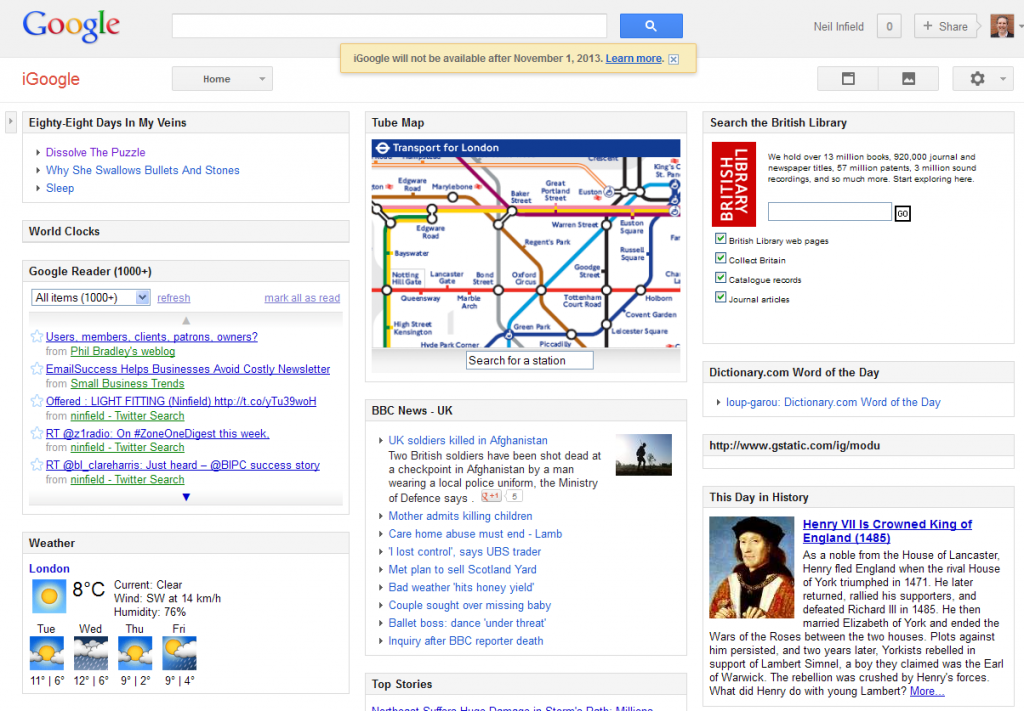Last Thursday I gave a presentation during the Aerospace & Defence Librarians Group seminar organised by Ben Chan at the Cilip HQ
The title of the day was the Library Information Survival Guide and there were some interesting sessions.
I was starting to panic the day before as half of my PowerPoint slides seem to have got damaged between home and work. So as well as using multiple memory sticks I also posted a copy of the presentation onto slideshare. This free service is like YouTube for presentations and includes my least favourite word of the Web 2.0 era ‘favorited’. The currently most favorited presentation on the site has had over 800,000 views which is impressive by any standards.
However what I liked about the service is that you can not only download presentations from the site as well as view them in medium size on the web, you can also run them in full screen mode. So all you need is a decent internet connection to provide a backup to the presenters worst nightmare of their memory stick failing.
Here is the link to my presentation about the Business & IP Centre.

